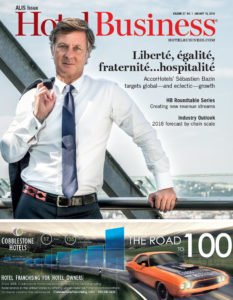Like the luxury chain scale at the other end of the pricing spectrum, economy hotels are expected to post some of the hotel industry’s highest growth rates for ADR and RevPAR in 2018. Primarily, these gains will be driven by minimal new supply, paired with a continued post-recession recovery that occurred later than with other segments.
According to sources who spoke with Hotel Business, there’s still room for economy hotels to push rate and even make modest gains in occupancy in 2018, since the segment is still performing below peak levels. A near-negligible bump of 0.2% in new supply only sweetens the pot for economy operators this year.
“There’s not a lot of new supply in economy, and in real terms, the segment is not back to where it was [pre-recession],” explained Mark Woodworth, senior managing director of CBRE Hotels’ Americas Research. “Historically, supply growth in the economy segment is driven by the level of conversion activity, as opposed to construction activity.”
CBRE is expecting occupancy growth of 0.7% to 58.5% overall, an average ADR increase of 2.7% to $64.04—the highest growth of any segment—and RevPAR growth of 3.4%, to $37.45, which in terms of growth rate is second only to the luxury segment. STR is projecting slightly less expansive numbers for the segment, with a year-end 2018 occupancy decline of -0.1%, ADR growth of 2.3% and a RevPAR increase of 2.3%.
 “If you look back to 2013 through 2015, economy hotels were not growing in rate or occupancy, so there’s still catch-up opportunities there, and the segment is behind in real RevPAR from its prior peak,” said Robert Mandelbaum, director of research information services for CBRE Hotels’ Americas Research.
“If you look back to 2013 through 2015, economy hotels were not growing in rate or occupancy, so there’s still catch-up opportunities there, and the segment is behind in real RevPAR from its prior peak,” said Robert Mandelbaum, director of research information services for CBRE Hotels’ Americas Research.
Mandelbaum also explained that demand remains healthy and growing—albeit at just 0.9% in 2018—attesting to the ongoing value that consumers perceive in getting a clean, comfortable room at a reasonable price. Even large companies are increasingly booking economy rooms, in order to work within tightened corporate travel budgets.
“To understand the consumer point of it, I’ve always held the belief in the hotel industry that we’re biased to some degree, because our travel selections and patterns are probably different than the majority of other travelers,” said Mandelbaum. “When you work in a big company like PwC and there are travel policies, that’s when it’s real world. They tell stories about how changes to their company policy are reflective of what’s happening.”
And while the demand side grows, the new-supply pipeline remains largely stagnant, thanks in part to the development community’s intensive focus on building upper-midscale and upscale select-service hotels. CBRE projects just 0.2% economy supply growth this year, and much of that will likely come from conversions. This offers economy hoteliers the luxury of driving both rates and occupancy this year.
“Economy brands have been kind of tailed off because most of the excitement and development activity has been on the forefront for the upper-midscale and upscale segments,” said Vijay Patel, president and CEO of Lakeway Hospitality. “I feel like the supply is very limited in economy because the cost to build the economy brands is significant, yet it’s hard to drive the rate you need to make the deal work from a lender’s perspective. Meanwhile, individual business travelers are continuing to grow, and we’re definitely seeing corporate activity continue to grow. Demand overall will continue to rise in 2018.”
There are also broader, macroeconomic factors in play that hoteliers believe may aid in economy hotel performance in 2018, namely the state of the national economy this year as it unfolds. Since economy properties rely heavily on budget-conscious family travel, as well as traveling laborers, the growth in discretionary and infrastructure spending that some anticipate could further boost demand and occupancy beyond the current estimates.
“The demand, essentially, for economy hotels has been a lot of traveling families and traveling contractors and salespeople, and I believe those groups have an opportunity to increase this year,” said Doug Collins, president of DC Hospitality. “If we get a federal infrastructure bill, that could put a lot of contractors on the road. Families are also enjoying an economy that is somewhat better, so that gives them some money to go travel. A lot of families will stay in an economy hotel, and enjoy a clean, comfortable room, and still have money left to do what they want on their vacation.”

